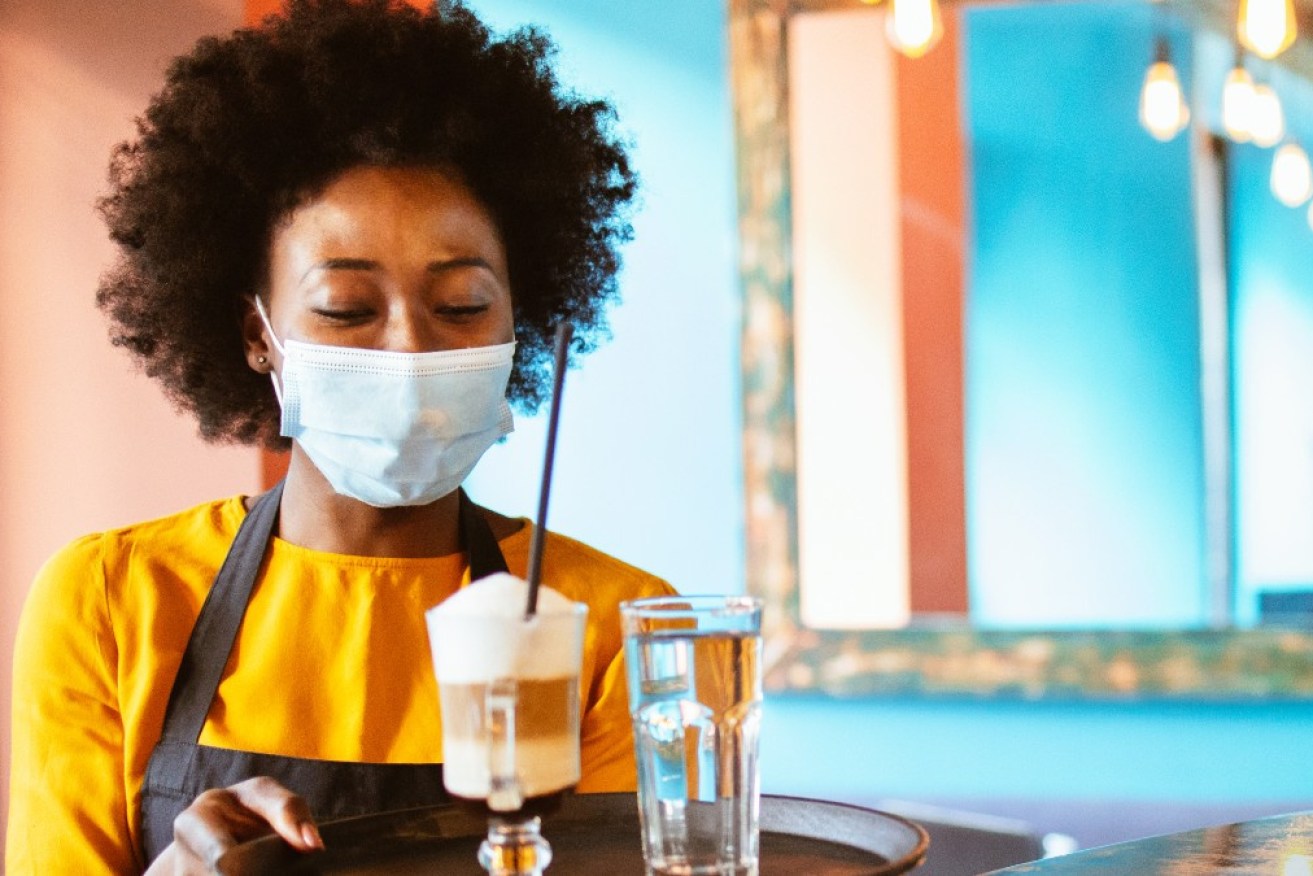‘Furious and devastated’: Restrictions hit hospitality with stand-downs and cancellations


The pain isn't over for the hospitality industry as Omicron sweeps the nation. Photo: Getty
Staff are being stood down and large swathes of customers are cancelling bookings as the Omicron wave batters an already hard-hit hospitality industry.
But businesses and workers have reduced access to financial support because no local government areas have been declared as coronavirus hotspots, despite multiple states tightening restrictions.
Treasurer Josh Frydenberg said previous COVID-19 disaster payments and support for businesses linked to the declaration of hotspots were emergency measures in response to extended lockdowns.
He said he was confident that the Australian economic recovery would “maintain the momentum that we have seen over recent months”.
But Restaurant and Catering Australia CEO Wes Lambert said the return of density restrictions in New South Wales and South Australia was restricting the hospitality industry’s ability to recover from previous lockdowns.
Restrictions and low confidence hitting hospitality
Australian Council of Trade Unions president Michele O’Neil said workers are “having their hours cut, shifts cancelled and jobs ripped out from underneath them” as Australians isolate and change their holiday plans.
Ms O’Neil said it is increasingly tough for workers to find secure, well-paying jobs, with many forced into casual jobs “at an alarming rate”.
Verity Ferguson, owner of Southwark Hotel at Thebarton, South Australia, said she is currently the only one working at the venue after having to stand down all of her staff following the return of the state’s indoor hospitality restrictions.
“We’re furious and devastated – it’s our livelihood,” she said.
On top of density restrictions putting people out of work, businesses are also struggling with thousands of cancellations in what should be the busiest time of the year, Mr Lambert said.
“Ultimately, we are not learning to live with COVID,” he said.
“We are highly vaccinated, and we have a very low hospitalisation rate.
“But this is not changing the hearts and minds of the government or consumers when it comes to restrictions.”
Dan, manager of The Nag’s Head Hotel in Glebe, NSW, said at least 50 per cent of the pub’s bookings were cancelled as COVID-19 cases surged over the past couple of weeks.
“It was for two reasons – either they were close contacts and they couldn’t come in, or they were trying to stay clear of being a close contact so they could get to their Christmases,” he said.
Mr Lambert said federal and state governments should reinstate financial stimulus when reintroducing density and border restrictions.
“They are telling us not to be afraid of case numbers, but they are putting in place rules that make consumers afraid,” he said.
Calls to relax COVID-19 rules and provide rapid testing
Mr Lambert said isolation requirements for close and casual contacts were leading to staff shortages and forcing hospitality businesses to close their doors as a result.
Dan said his pub is currently “very short-staffed” due to self-isolation requirements.
“All it takes is for someone to just have a runny nose or a sore throat, and then they have to wait for test results before they can come back to work,” he said.
He said increased access to rapid antigen tests (RATs) would help – a sentiment echoed by Mr Lambert, who said all state governments should be providing free RATs to reduce pressure on testing centres.
NSW and Victoria have already put in orders for millions of RATs, while national cabinet will meet on Thursday to redefine what it means to be a close contact and set out parameters for when RATs can be used instead of PCR tests.
Tweet from @unionsaustralia
Meanwhile, Ms O’Neil said the Prime Minister should “take responsibility for the failures in vaccinations and quarantine” and provide free and accessible RATs.
She said it is shameful that the federal government has fallen behind even the US’s “broken health system”, after the Biden administration bought 500 million RATs to be distributed for free.
For as long as high case numbers lead to restrictions in Australia, Mr Lambert said Restaurant and Catering Australia will call upon state and federal governments to bring back economic stimulus.
Government urged to reintroduce financial aid
Dan said although his establishment emerged from various lockdowns “relatively unscathed” thanks to being part of a larger group, independent businesses would definitely need financial help to get through the current outbreak.
“As long as there are government restrictions on the ability of businesses to trade, then the government must [offer] a stimulus,” Mr Lambert said.
State governments have varying responses on what type of financial support, if any, is on the way to help businesses to stay afloat during the current COVID-19 surge.
When questioned by TND, a Victorian government spokesperson referred to the $13 billion it had already spent supporting Victorian businesses.
A NSW Treasury spokesperson pointed to the state’s Economic Recovery Strategy released in October when Omicron was yet to hit the country.
South Australian Treasurer Rob Lucas said the state government would announce the details of a financial assistance package for businesses hit by the latest COVID restrictions this week.








